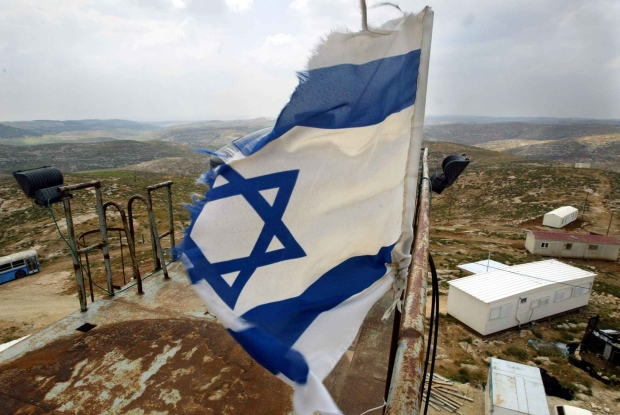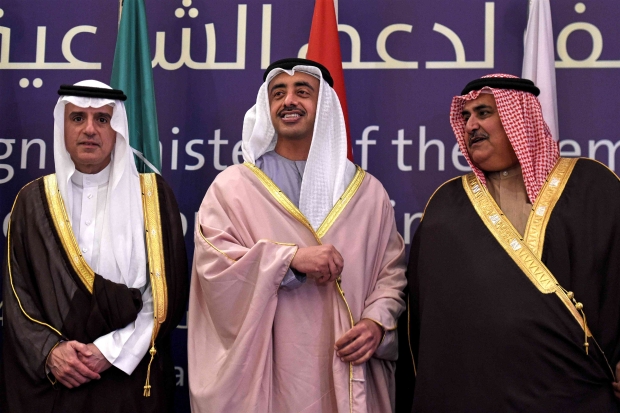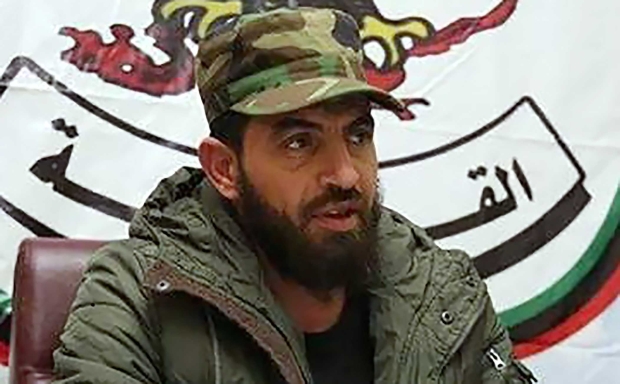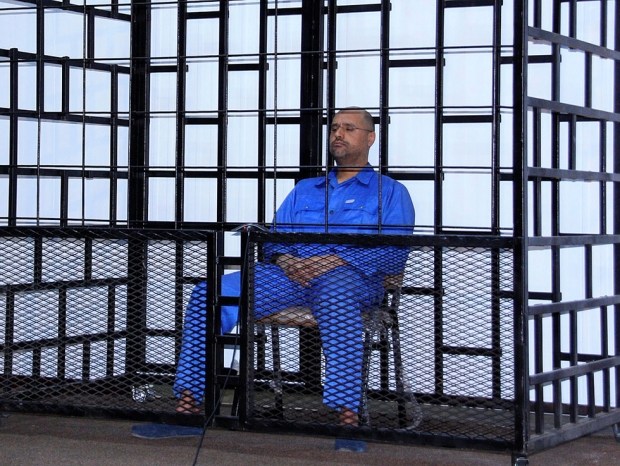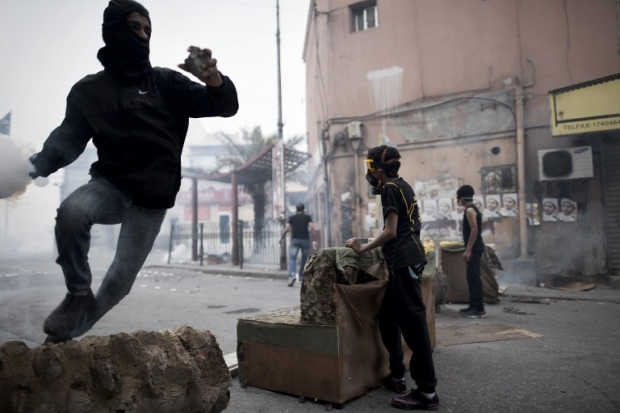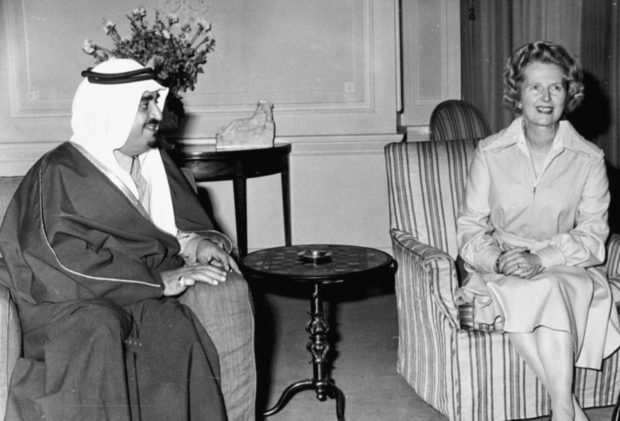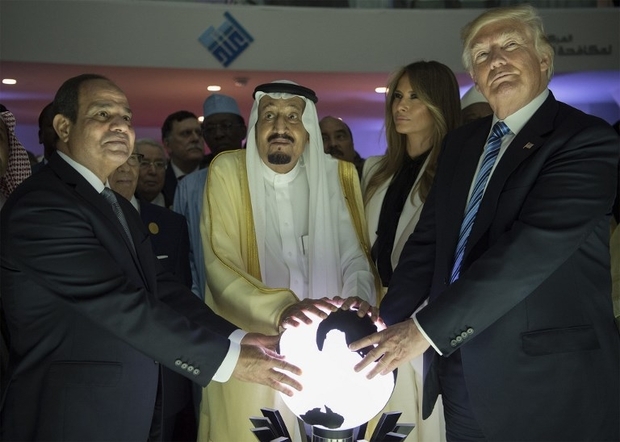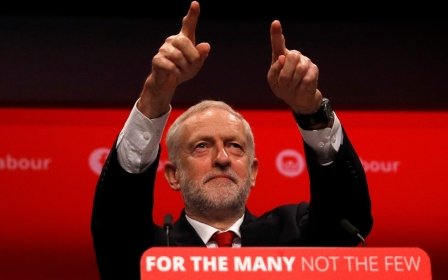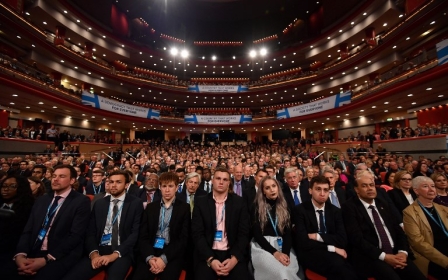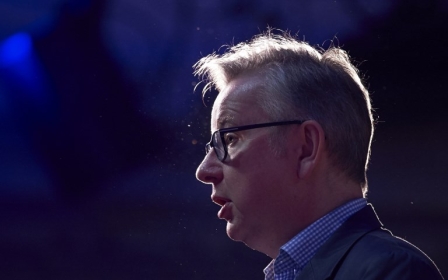Why is the Conservative Party ignoring Palestine?
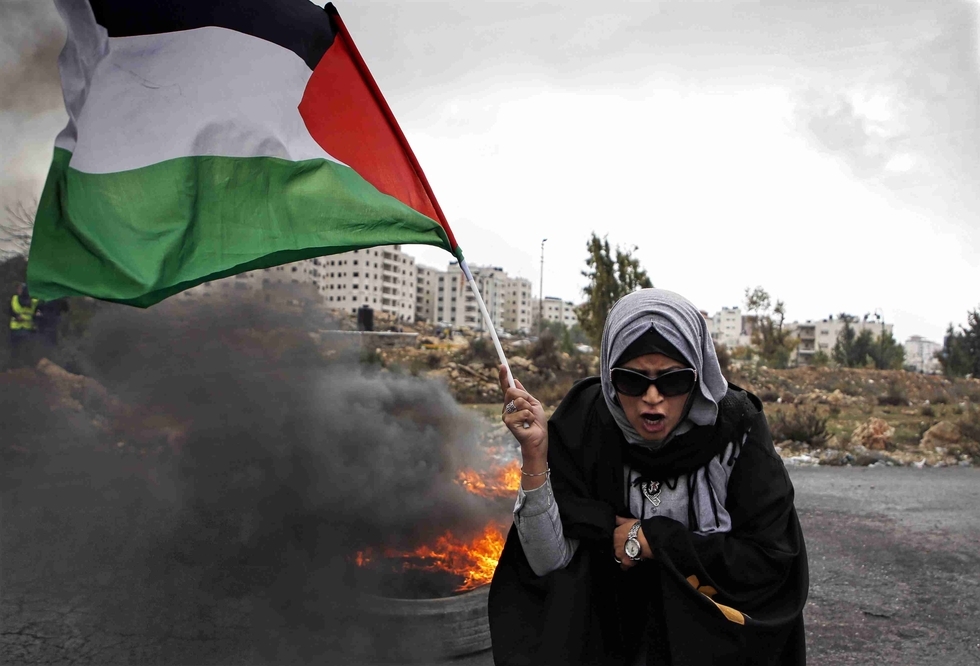
Israel has had a powerful voice in the UK Conservative Party during the past 30 years through the Conservative Friends of Israel.
By contrast, there has been no counter organisation – a “Conservative Friends of Palestine”, if you will – to serve the interests of those living in the West Bank, Gaza and beyond.
Ask any Conservative MP and they will tell you that the nearest equivalent is a group called the Conservative Middle East Council - or CMEC.
Yet despite its origins backing the cause of Palestine, there is compelling evidence that CMEC lobbies primarily on behalf of Gulf states - notably Saudi Arabia, the UAE and Bahrain - while also receiving money and attention from those close to these governments.
Meanwhile the Palestinians have slipped down CMEC’s agenda. One senior and well-connected Tory politician told MEE that CMEC now “ignores the Palestinian issue” and called on it to “up its game”.
How Palestine was core to group's launch
CMEC was founded in 1980, shortly after nine European countries, including the UK, signed the Venice Declaration, which formalised concern about Israeli settlements in the occupied Palestinian territories. The group appeared to be a voice for Palestinians within the Tory party.
Between 2010 and 2015, under prime minister David Cameron’s coalition government, CMEC was chaired by Baroness Morris of Bolton, whose other roles included being president of the charity Medical Aid for Palestinians and the prime minister’s trade envoy to Jordan, Kuwait and the Palestinian territories.
When Morris stepped down in October 2015, she wrote that "it is no secret, especially given our history, where CMEC stands on the question of Palestine. The fundamental truth is that until the Palestinians are freed from the injustice and degradation of occupation, with a viable and truly sovereign state that guarantees the human rights of its population, the conflict will continue.”
The following day, Alan Duncan, the incoming chairman and MP wrote that “Conservatives should be unequivocal in supporting the right of Israel to exist and to defend itself,” but added that this statement was “not a carte blanche to the Israeli government to act with impunity. Being a friend of Israel is not incompatible with being a friend of Palestine."
Duncan was already known for his forthright views on settlements, expressed before he joined CMEC. He publicly challenged Yuli Edelstein - speaker for the Knesset and a settlement resident himself - when the Israeli politician visited London in March 2016.
But these interventions are limited - and very much in the past. There is now increasing evidence that CMEC is failing to promote the interests of the Palestinian people.
'Being a friend of Israel is not incompatible with being a friend of Palestine'
- Alan Duncan, October 2015
We have discovered that CMEC has not taken a single Tory MP to the occupied West Bank or to Gaza for at least five years. By contrast, the Conservative Friends of Israel has taken 119 Tories to Israel since the 2015 election alone. It’s an extraordinary dereliction by an organisation which is supposed to support Palestinians.
The CFI has actively lobbied behind the scenes on behalf of the Israeli government. It has been forceful at issuing statements backing Israeli policy.
Not so CMEC, which did not even issue a response to Donald Trump’s Jerusalem Declaration of 6 December last year.
Nicholas Soames, CMEC president and Conservative MP, said: “It is true to say that we should do more for Palestinians.” He said that CMEC was “limited in money” and that the “Conservative Friends of Israel has a bottomless pit".
“When I started going to the Middle East in the early 1980s Palestine was the only thing that mattered. I literally can’t remember the last time any government I’ve visited even mention the Palestinians.”
But her comments are at odds with CMEC’s approach in Bahrain, the UAE and Saudi Arabia.
Crucially, these same Gulf states have in recent years formed a strong alliance with the government in Israel, taking a hardline stance against the aspirations of Palestinians.
UAE and the Libya connection
CMEC’s current stance can be seen in the approach taken by Leslie. She was appointed CMEC’s director in July 2017, one month after she was unseated as Conservative MP for Bristol North West, which she had represented since 2010. She replaced Leo Docherty, now the Conservative MP for Aldershot, who had overseen the group’s operations since 2010.
Leslie was an MP for six years before she made her first parliamentary speech on the Middle East in May 2016, asking “what Britain might learn from its relationship with the Gulf” and describing the UAE as a haven for “pluralism”.
'It is easy to carp morally from the sidelines on issues such as human rights'
- Charlotte Leslie, Conservative MP, May 2016
At the time she had just returned from a trip to the UAE, paid for by its government (MEE asked Leslie what knowledge she had of the Middle East before this trip: she declined to reply).
But foreigners in the Emirates are considered second-class citizens, while activists, journalists and academics have all faced imprisonment, show trials, and alleged torture. So too have tourists and businesspeople.
Andy Slaughter, a Labour MP, asked Leslie during the same debate if she had anything to say about the 37 British citizens who have reported being tortured by the Emirati police during the past five years. She replied: “It is easy to carp morally from the sidelines on issues such as human rights… but that is not always the best way…” and also called Western attempts to promote human rights for UAE citizens as “impotent moralising”.
In November 2016, lobbyists Falcon and Associates International Ltd paid £4,313 (around $6,160) for Leslie to travel to the UAE again to “gain a deeper understanding of the important strategic links between Dubai and the UK”.
CMEC’s rapprochement with the UAE extends beyond the Gulf to Libya and the country’s ambitions in north Africa
Falcon describes itself as “a strategic advisory company working on behalf of the Dubai leadership” which is there to “support and enhance Dubai’s position on the world stage”. It is in effect a state-owned propaganda arm.
CMEC’s rapprochement with the UAE extends beyond the Gulf to the country’s ambitions in north Africa. There it has become a key supporter of the Dubai’s controversial foreign policy towards Libya, backing Field Marshal Khalifa Haftar, a notorious warlord and one-time ally of Muammar Gaddafi, rather than the internationally recognised government in Tripoli.
But Libyans fear that Haftar could become a replacement for the brutal rule of Muammar Gaddafi, who the UK helped depose in 2011.
An activist told the Atlantic in July 2017: “We’ve come to regard [Haftar] as a mini-god, and that’s dangerous. That’s what we did with Gaddafi.”
The UN has already detailed how UAE has repeatedly broken an arms embargo imposed on Haftar, putting the Gulf state in clear violation of international sanctions.
Kwarteng, writing in the London Evening Standard in January 2017, dismissed the internationally recognised Government of National Accord (which opposes Haftar’s rule), praised the military leader as a “potential saviour” and said that while Haftar was “a divisive figure” it would be “difficult to think of a senior military figure in all human history who has not been…”
But Haftar isn’t just “divisive” – he’s also accused of war crimes. Both Amnesty International and Human Rights Watch have blamed him for over-seeing civilian executions, torture, disappearances, and even the defiling of corpses. The International Criminal Court has issued an arrest warrant for his lieutenant Mahmoud Mustafa Busayf Al-Werfalli for his alleged role in multiple killings.
In March 2017, Kwarteng and Docherty met Haftar at a military camp in al Rajma.
On their return, the men described him as “composed and confident” and relayed a direct message back from Haftar to any decision-makers listening: “We can end this chaos but we call on your government to help us.”
Some of CMEC’s donors also seem to have links to Libya’s former leaders.
Marwan Salloum is registered as a director of CC Property Company Ltd and is also owner of Consolidated Construction Company, the largest engineering firm in the Middle East which has interests in Libya.
Electoral Commission records show that CC Property Company Ltd made donations of £30,000 ($42,000) to CMEC in March 2017 and £17,000 ($24,400) in donations in 2011 and 2013.
Salloum is a former close friend and business associate of Saif al-Islam Gaddafi, son of the deposed leader. The pair reportedly enjoy each others company. During the revolution, photos emerged of Salloum partying with Saif on a luxury yacht in Brazil.
Crucially, Haftar is also supportive of Saif and once said of him: “If he wants to play a political role, there’s no problem," also adding: “I have nothing against him, on the contrary, he is welcome.”
In June 2017, Saif was released from prison. He now lives under the protection of Haftar, despite being wanted for war crimes by the ICC.
The impact of the CMEC report on Libya is hard to gauge. Hundreds of such reports are published around Westminster each year. But such lobbying can have consequences.
And in October 2017, Johnson said that Sirte - controlled by Haftar - could be “the new Dubai,” adding: "There's a group of UK business people, actually, some wonderful guys who want to invest in Sirte on the coast, near where Gaddafi was captured and executed as some of you may have seen.”
Dialogue and awards with Bahrain
The ties between Bahrain and CMEC go back further still. Each year, CMEC organises a delegation of MPs to attend the Manama Dialogue conferences, which take place under the auspices of the International Institute for Strategic Studies (IISS). At least 30 percent of the think tank’s budget comes from the Bahraini government, according to rights group Bahrain Watch.
The conference is an international forum for discussions of foreign affairs, but also acts as a soft power initiative for the Bahraini elite. According to Bahrain Watch, CMEC is “a central player in the visits” each year. Kwarteng is the only Conservative MP to have attended all Manama Dialogue conferences since 2011.
Likewise in December 2017, Nicholas Soames MP, president of CMEC, received an award for “chivalry” in Manama from the Bahraini government at a ceremony attended by Crispin Blunt, Conservative MP and CMEC treasurer.
Docherty was elected as MP in June 2017, yet by October had already visited the country at a cost of £2,909 ($4,140) to its foreign ministry, to meet with Crown Prince Salman of Saudi Arabia.
In February 2016 he praised its “moderate leadership and responsible government” in a piece for the in-house Tory Party journal, Conservative Home.
Leslie’s most recent paid-for trip was to Bahrain in December 2017. She issued a YouTube video, during which she took in a mosque, a Hindu temple and a synagogue and said that many religions are clearly allowed to co-exist in Bahrain.
But in Bahrain the minority Sunni citizenry, represented by the al-Khalifa regime, hold great power over the majority Shia population. They do this through a monopoly on jobs and education and by restricting freedom of speech, be it in mosques or online or politically, including the Al-Wefaq National Islamic Society.
Leslie’s comments are in contrast to a report in August 2016 by senior United Nations officials which noted that “the dissolution of Al-Wefaq National Islamic Society, the shutting of faith-based organizations, restrictions on the practice of religious rites, on Friday prayers and peaceful assemblies, restrictions on movement, restricted access to the Internet and a ban on Shia religious leaders from preaching” had contributed to “a chilling effect on fundamental human rights”.
But Leslie did not mention nor address these themes. When we asked Leslie why her video didn’t mention that Shia religious readers are banned from preaching, or the challenges faced more generally by Shia Bahrainis, she did not reply.
And a week after the video appeared, CMEC official Marc Morrison, a former parliamentary assistant to Kwarteng (now vice-chairman of CMEC), published an article in Conservative Home arguing that "a strong relationship with Bahrain is vital to our Middle East policy”.
Saudi Arabia, arms deals and donors
Perhaps the most generous CMEC donor has been the property developer and financier David Rowland. A regular donor to the Conservative Party, he has given more than £465,000 ($660,000) towards CMEC’s running costs, including £60,000 ($85,000) in October 2017.
Rowland has close ties with the leaderships of both the UAE and Saudi Arabia and is presently in the process of creating a joint banking venture with the sovereign wealth fund of Abu Dhabi, Mubadala.
Docherty received £10,000 ($14,230) from David Rowland to help him get elected as an MP in June 2017.
A second key donor with links to Saudi Arabia is Rosemary Said, wife of Wafic, a billionaire and key fixer in the al-Yamamah deal which delivered billions in British military equipment manufactured and maintained by BAE Systems to the Saudi armed forces from the mid-1980s onwards under the government of then-prime minister Margaret Thatcher.
Rosemary Said donated £50,000 ($71,150) to CMEC in September 2016, with further donations to CMEC of £20,000 ($28,460) in 2015 and £100,000 ($142,310) in 2008.
In June 2016, she also made a £10,000 ($14,230) donation to CMEC chairman Hugo Swire, which helped him get re-elected as an MP.
Leslie has also been targeted by the Saudis. In December 2016, a week after returning from the Manama Dialogue in Bahrain, the then-MP received a luxury hamper from the Saudi Arabian Embassy in London, valued at £500 ($711).
The silence over Jerusalem
In comparison, CMEC’s efforts to lobby on behalf of Palestinians seem minimal.
It was impossible for CMEC to ignore the Palestinian issue in 2017, the centenary anniversary of the Balfour declaration.
In April 2017, it published a report, arguing against settlements and criticising the Israeli government for its policies in east Jerusalem.
And in December 2017, the group hosted former US Secretary of state John Kerry to discuss the Palestinian issue, as its annual policy lecture.
But the group was quiet on the most momentous decision to affect the Palestinian dispute of late – Donald Trump’s order on 6 December 2017 to move the US embassy in Israel to Jerusalem.
CMEC is yet to issue any formal statement, other than a tweet reporting the news on their Twitter feed.
A second tweet showed former chairman, Alan Duncan, now in his capacity as a government foreign office minister, giving a TV interview expressing the government’s disapproval.
Leslie did at least retweet Soames calling Trump’s move “a very bad decision,” as well as a Foreign Office tweet in Arabic condemning the move.
But from the other CMEC officers there has been silence, including Docherty – now serving as vice chairman of CMEC.
There has also been silence from Kwarteng, despite publicising his CMEC report on the Libya migration crisis earlier in the year; and Hugo Swire, chairman of CMEC, who did not respond to the news on his otherwise active Twitter feed, even though he was attending a speech by Johnson, specifically about the Middle East, on the same day.
In contrast the British-Palestine All-Party Parliamentary Group issued a letter condemning the decision, backed by the Council for Arab-British Understanding, a similar, if more pro-Palestinian, Westminster pressure group.
But the names of Docherty, Kwarteng and Soames were nowhere to be found. Crispin Blunt, the CMEC treasurer, was the only CMEC official to put his name to it.
CMEC organised delegations to Palestine in September 2010, September 2011 and May 2012. It has not organised a trip since.
Indeed, there seems to be confusion among CMEC officials about when the next trip to Palestine will be. When MEE asked Leslie, she said in a written response that it would be “this spring”.
But Morrison, CMEC’s head of policy, told MEE in a phone conversation that while he knew that a trip had been discussed he did not believe a trip was scheduled.
Records from the Electoral Commission also show that Leslie never visited Palestine during her seven years as an MP. She declined to answer when asked if she had visited since losing her seat.
The Gulf is all that matters
There is an obvious parallel between CMEC’s detachment from the Palestine issue, originally so central to its identity, and developments in the Arab world as Saudi Arabia, the UAE and Bahrain switch their support away from the Palestinians and towards the hardliners now running Israel.
For example, we now know that Israeli Prime Minister Benjamin Netanyahu first secretly met with senior Emirati officials and ministers as early as 2012 to discuss how to respond to the threat from Iran. In November 2017, Israel's chief of staff, Gadi Eizenkot, gave the first-ever official interview to a Saudi news outlet, saying that Israel was ready to share intelligence with Saudi Arabia regarding Iran. Israeli Communications Minister Ayoub Kara has invited Saudi's grand mufti, Abdul Aziz al-Sheikh, to visit Israel. There are numerous other examples.
A steady flow of money from CMEC’s Gulf patrons – unmatched by Palestinian donors – may be one reason why its focus is now on serving Riyadh, Abu Dhabi and Bahrain, more so as the UK looks to strengthen trade beyond Europe post-Brexit.
In a statement to MEE, Leslie said that the organisation was no longer focused on Palestine. “The purpose of CMEC may have been miscommunicated. Our purpose is to engage Conservative parliamentarians with the whole MENA region.”
The only conclusion is that there is now no serious force within the Conservative Party, which has been in government now since 2010, to act as a voice for the Palestinians.
This is despite the presence of a small group of Tories including Nicholas Soames, Hugo Swire and Kwasi Kwarteng who, while they have an interest in the region, are much closer to the Gulf states and their interests than Palestine and its people.
Swire told MEE it is wrong to think that CMEC has failed to stand up for Palestinians, pointing to the fact that the organisation’s affiliation to the Conservative Party made it subject to very strict funding rules.
The only conclusion is that there is now no serious force within the Conservative party, which has been in government now since 2010, to act as voice for the Palestinians
He also said that CMEC had not acted as an advocate for British support for Haftar in Libya. “We don’t have a corporate view on these things. We do not lobby. We are merely a facilitator to encourage Tory MPs to get a better understanding of the Middle East as a whole.”
It does go some way to explaining the reticence of both David Cameron and Theresa May to offer any serious criticism of the Israeli government.
If CMEC is not prepared to represent the Palestinian cause inside the Conservative Party, then perhaps another organisation should take up the challenge.
- Peter Oborne was named freelancer of the year in 2016 and again in 2017 by the Online Media Awards for an articles he wrote for Middle East Eye. He was British Press Awards Columnist of the Year 2013. He resigned as chief political columnist of the Daily Telegraph in 2015. His books include The Triumph of the Political Class, The Rise of Political Lying, and Why the West is Wrong about Nuclear Iran.
- Alastair Sloan focuses on injustice and oppression in the west, Russia and the Middle East. He contributes regularly to The Guardian, Al Jazeera and Middle East Eye. Follow Alastair's work at www.unequalmeasures.com.
The views expressed in this article belong to the author and do not necessarily reflect the editorial policy of Middle East Eye.
Photo: A Palestinian lawyer waves her national flag reacts during clashes with Israeli security forces following a demonstration in the West Bank city of Ramallah on 13 December 2017, amid protests at the US recognition of Jerusalem as Israel's capital.
New MEE newsletter: Jerusalem Dispatch
Sign up to get the latest insights and analysis on Israel-Palestine, alongside Turkey Unpacked and other MEE newsletters
Middle East Eye delivers independent and unrivalled coverage and analysis of the Middle East, North Africa and beyond. To learn more about republishing this content and the associated fees, please fill out this form. More about MEE can be found here.



